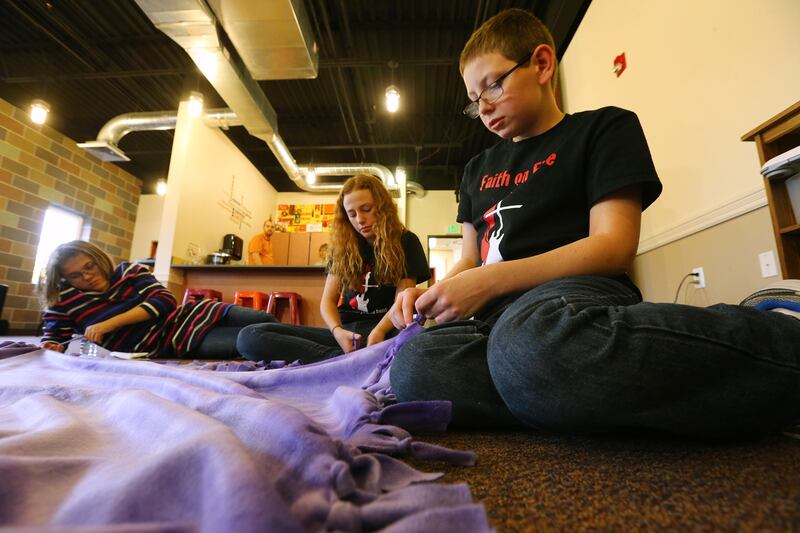SALT LAKE CITY — The past few years were tough for churches. Worship attendance dropped. Religious disaffiliation rose. Many young adults said they don’t believe in God.
Despite these trends, some Americans believe the future of faith is bright. New forms of worship could fuel conversions. Millennials who don’t attend church will recognize the value of religion as they age.
“A religious renewal could be on the horizon,” argued a recent column in The Wall Street Journal.
Religion researchers take issue with some of these claims. Most notably, they say those concerned about organized religion are placing their hope in the wrong generation.
“The best evidence all points in the same direction,” said Daniel A. Cox, a research fellow at the American Enterprise Institute. Nonreligious millennials are likely going to stay that way.
“Millennials were raised in less religious households, reported lower levels of religious engagement during their formative years and came into adulthood with less interest in joining and participating in religious communities,” he said.
These factors make it unlikely that unaffiliated millennials will one day join a church. So does the fact that millennials who are nonbelievers often pair up with other religious “nones,” said Melissa Deckman, a political science professor at Washington College in Maryland.
“There isn’t a partner in that relationship to bring them into church” after marriage and kids, she said.
In 2008, around one-third of millennials (31.9%) were religiously unaffiliated. Over the next decade, that figure rose more than 10 percentage points to 42.7%, according to data provided by Ryan Burge, a political scientist at Eastern Illinois University.
“Without some type of exogenous shock to disrupt the current patterns of behavior ... it’s difficult to see how this (trend) does not continue,” Cox said.
If you’re looking for good news about the future of faith, you should turn your attention away from millennials and onto Generation Z, researchers said. For this group, comprised of teens and young adults born in the mid-1990s or later, the rate of religious disaffiliation is holding pretty steady.
“It’s bizarre how flat the (trend) line is,” Burge said.
To be clear, Generation Z is still notably nonreligious. Around 42% of members of the generation were religiously unaffiliated in 2018.
But, in light of recent demographic trends, researchers expected Generation Z to be even less religious. There’s generally a significant increase in disaffiliation from one generation to the next, Burge said.
For example, 25.5% of boomers are religious nones, compared to 18.7% of members of the silent generation. Around 43% of millennials are unaffiliated, compared to 34.3% of Generation X.
However, there is no jump in religious disaffiliation from the millennial generation to Generation Z. When it comes to religion data, members of this generation look more like their generational neighbors than something new.
“There seems to be a leveling off of rates of disaffiliation,” Deckman said, citing results from a recent survey she conducted on Generation Z.
Additionally, the members of this generation who attend church are often more engaged with their faith communities than their elders, Burge said.
Nearly 6 in 10 evangelical members of Generation Z (58.2%) attend church weekly, compared to 54.5% of evangelical millennials and 49.5% of evangelical boomers. Three in 10 mainline Protestant members of Generation Z (30.5%) attend church weekly, compared to 25.2% of Generation X.
“It’s a smaller group (attending church), but they seem to be very devout,” Burge said.
The bottom line is that Generation Z offers more cause for optimism about the future of faith than the millennial generation, researchers said.
However, they admit that, as Generation Z ages, that could change.
“We only have a very early look at” members of Generation Z, Deckman said. Once more of them move away from their parents for college, work or marriage, researchers will be able to see if current trends hold up.
“Some studies show that once young adults go to college, they’re less likely to attend religious services because they have independence from family life,” she said.
Burge, who is also an American Baptist pastor, prefers to be hopeful.
“It’s very, very early. But we’re seeing some things in the data that we’ve never seen before,” he said.


